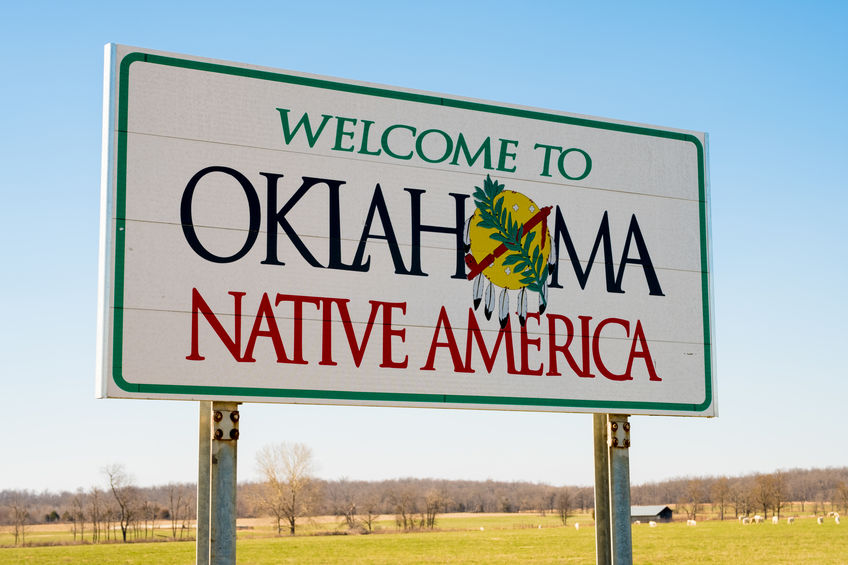Hogner Case Was Decided by Craig County District Court
Video Transcribed: McGirt
does apply to the Cherokee Nation Reservation. I’m McGirt attorney, James Wirth, and I’m letting you know about a new decision from the Oklahoma Court of Criminal Appeals that we’ve been waiting for for months to give us some feedback on the extent to which the McGirt precedent applies to other tribes.
All right, so going back, a little bit of history on McGirt v Oklahoma. That’s the United States Supreme Court decision from July 9th of 2020 that held the Muskogee Creek Tribal Reservation was never disestablished and therefore, the historic boundaries of it are the current boundaries today which means, based on another precedent, the State of Oklahoma lacks jurisdiction to charge Indians of crimes in that territory.
And the Muskogee Creek Nation is in a very similar position to the other four of the five civilized tribes, in that their treaties are very similar, same times, almost identical for the most part which means that we pretty much knew from the beginning that if McGirt applies to Muskogee Creek, it’s also going to apply to the other of the five civilized tribes.
However, some judges have been refusing to dismiss cases or to grant post-conviction on cases related to crimes that occurred on the Cherokee Nation Historic Reservation because perhaps they’ve been holding out hope that there might be a different decision from the Oklahoma Court of Criminal Appeals or elsewhere, or they were just delaying for other reasons.
Regardless, we’ve seen these cases passed over and over again in Tulsa County. They were passed for a while in other counties. In Rogers County, just recently, Judge Steidley dismissed about 100 of them, but he stayed that dismissal for 90 days so that it actually has not had that effect of dismissal.
But on March 11, 2021, we got the first major decision related to Cherokee Nation specifically, and it’s from the Oklahoma Court of Criminal Appeals. And it is in the Hogner case. It’s Hogner v. State. It’s already been released, and it’s published as 2021 OK CR4.
And essentially, what the court found there is that when you apply the framework in McGirt to the specific circumstances of the Cherokee Nation, you find that that historic preservation was also not disestablished.
There’s plenty of evidence that it was established, and under McGirt, there has to be specific congressional intent to disestablish it, and that was not found to exist. So the court there found that the tribal reservation remains intact. The State of Oklahoma lacks jurisdiction to charge Indians of crimes that occur in that reservation.
And it’s a rather large reservation as well. It deals with all or parts of the following counties in Oklahoma: Adair County, Cherokee County, Craig County, Delaware County, Mays County, McIntosh County, Muskogee County, Nowata County, Ottawa County, Rogers County, Sequoyah County, Tulsa County, Wagner County, and Washington County.
And the case, applicable, the Hogner case was actually decided by Craig County District Court, and then it went up on appeal. It has now been reversed. The conviction has been reversed. The sentence has been reversed, and it was remanded back to Craig County District Court with orders to dismiss it.
Now, as for that particular defendant, there are two things. First off, the mandate in that particular case will not be effective for 20 days. And because of that, some prosecutors, we’ve already seen because we’re using this in cases that we have where we can show that the state lack jurisdiction, we’re asking for dismissals and post-conviction, and some are saying that 20 days to should apply to other cases as well because it says it stayed 20 days.
Well, no. The decision is not to stay 20 days. The decision has actually been published. It is a binding precedent. So that does need to be followed by other judges. However, as is typical in the particular appellate case, normally have the opinion that comes out, and then it’s followed by the mandate, and the mandate will come out 20 days later and that’s mandating that particular order in that particular case.
But as far as precedent goes, it’s a done deal. It’s a published decision. So other courts need to follow that. There’s no excuse to delay any longer on those Cherokee County cases that are being delayed. The State of Oklahoma lacks jurisdiction.
The second part that I was talking about, though, is just because the state lacks jurisdiction doesn’t mean that these people cannot be punished elsewhere, and that depends on the individual specifics of the case.
The state lacks jurisdiction, needs to be dismissed there, but the federal courts have jurisdiction. And depending on the type of crime, the trial court may have jurisdiction for crimes that occur in their tribal reservation.
So some of these may be re-prosecuted. Other ones may not be able to be re-prosecuted because the statute of limitations has passed or because they’re simply the evidence doesn’t exist anymore. Witnesses, memories may have failed. People may have passed away. So it may be difficult to re-prosecute those.
If you’ve got questions about a specific case or circumstances, you may want to talk to an attorney about that directly and privately. To get something like that scheduled, you can go to makelaweasy.com.



